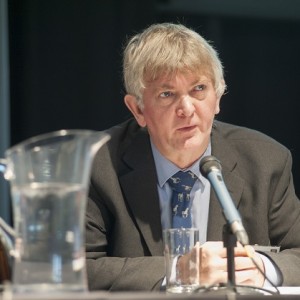Schools will have to commission independent reviews of GCSE coursework marks if pupils ask, according to new rules imposed by exam boards.
Updated guidance from the Joint Council for Qualifications obliges schools to use an “independent assessor” to review marks of non-exam assessments (NEAs) when asked to do so by pupils from now on.
But a dispute between the JCQ and the exams regulator Ofqual has caused confusion over which school staff will be eligible to carry out the reviews, and led to concerns that some schools may have to foot the bill for extra external staff.
The JCQ, which represents exam boards OCR, AQA, Edexcel and WJEC, included the rule in its latest guidance, coming into force from September.
As these appeals have to be carried out by an independent person, small departments will have to try and recruit outside of school
It claims that the rules have been introduced to avoid conflicts of interest, but that it is up to Ofqual to decide who qualifies as an assessor.
For its part, Ofqual insists it has always allowed reviews, and has only made a slight change to its rules to allow a third-party assessor “if necessary”.
The guidance stipulates that where reviews of coursework marks are requested by pupils, schools must appoint an external assessor with “appropriate competence”, but “no personal interest” in the review to carry it out. This assessor must not have had any “previous involvement in the assessment of that candidate”.
Although many secondary school teachers regularly teach and assess outside their own subject area, there is a concern that smaller schools and specialist departments may struggle to find assessors who fit the bill.
And now Ofqual and the JCQ are arguing over who first introduced the requirement for independent assessors.
A JCQ spokesperson told Schools Week that Ofqual was responsible, adding: “For the review to be fair it must be carried out by someone other than the original marker. To avoid any conflict of interest, suitably qualified third parties should carry out this work.”
However, a representative for Ofqual said the reviews have “always been permitted” and have always involved “one person with no conflict of interest”.
“What we have done is made the rules a lot clearer and more specific by saying that in the very rare cases where it would be needed, then a school is permitted to use a third party if necessary,” they said.

David Cooper, a retired computer science teacher, said the JCQ guidance will force some schools to hire costly external staff.
“As these appeals have to be carried out by an independent person, small departments will have to try and recruit outside of school,” he said.
“In my subject, there are already not enough computer science teachers teaching, let alone experts outside of the classroom clued up enough to carry out an appeal.”
Andrew Harland, the chief executive of the Exams Officers Association, also fears that some schools will have to seek external assessment, and said this “may prove unworkable”.
“In especially small and rural communities this may prove impossible as they have only a limited source of professional personnel to draw on,” he told Schools Week.
Harland said the issue had been flagged up in meetings with the JCQ, but that the directive was issued without consultation.
“One welcomes the JCQ intentions to add a greater level of accountability to agree academic criteria before any requests are made to the exam bodies, but in small departments which have one or two teachers who are teaching all the exam groups between them, the school will not have anybody who can adjudicate,” he added.
“The teaching profession may take issue with the suggestion that the professional integrity of such colleagues are being called into question and yet have nowhere else to turn to for support.”








Your thoughts